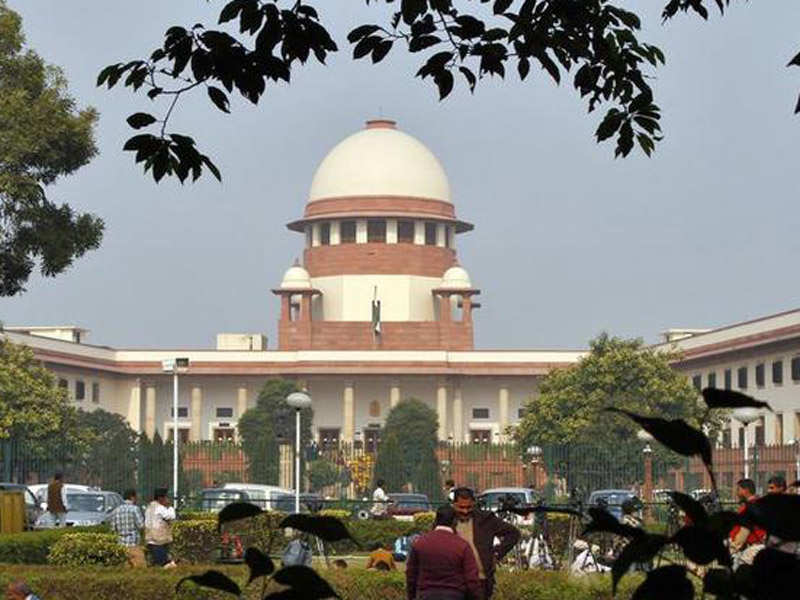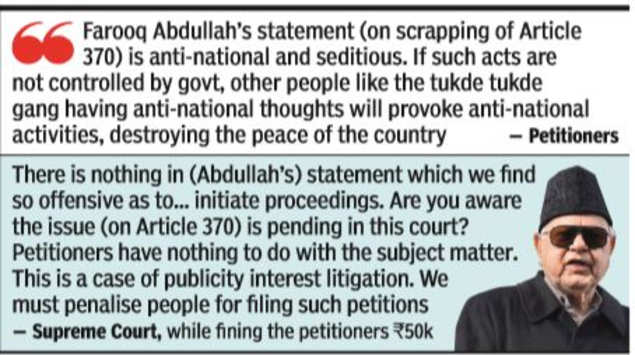Dissent not sedition, can’t try citizens for anti-government views: Supreme Court

Supreme Court of India
Emphasising that citizens cannot be prosecuted just for expressing their opinion against the government and its policies, the Supreme Court on Wednesday said expressing views which are not in conformity with a government policy is not sedition.
A bench of Justices Sanjay Kishan Kaul and Hemant Gupta dismissed a PIL seeking prosecution of former J&K chief minister Farooq Abdullah for the offence of sedition for expressing views against the decision of the Centre to scrap special status given to the erstwhile state under Article 370.
“Dissent cannot be termed sedition,” held the bench. “The expression of a view which is a dissent from a decision taken by the central government itself cannot be said to be seditious.”

As the petitioner pleaded the court to pass an order disqualifying Abdullah from Parliament for making “anti-national and seditious” statements against the country by opposing scrapping of Article 370, the bench got enraged and said penal action should be taken against the petitioner for filing a frivolous petition.
Appearing for the petitioner, advocate Shiv Sagar Tiwari contended that Abdullah made grave errors in making statements against the country by saying that he will get restored Article 370 which was passed by Parliament and he must be punished for sedition. He also alleged that the politician also made a statement in which he had said that help from China should be taken to restore Article 370.
“The statement of Farooq Abdullah is anti-national and seditious. If such acts are not controlled by the government, then other people like the ‘tukde tukde’ gang having anti-national thoughts will provoke anti-national activities, destroying the peace of the country,” the petition said.
The bench asked the petitioner to produce the alleged statement of Abdullah but the petitioner failed to do so and instead pointed out a BJP spokesperson’s statement quoting Abdullah.
“Where is that statement? You have even mentioned in your petition the clarification given on his statement that he was misrepresented. Are you aware that the issue (on scrapping of Article 370) is pending in this court? We must penalise people for filing such petitions for publicity,” the bench said. The court thereafter imposed a fine of Rs fifty thousand and asked the petitioner to deposit the amount in advocates’ welfare fund.
“There is nothing in the statement which we find so offensive as to give a cause of action for a court to initiate proceedings. Not only that, the petitioners have nothing to do with the subject matter and this is clearly a case of publicity interest litigation for the petitioners only to get their names in press. We must discourage such endeavours,” the court said.
The court’s order on dissent not amounting to sedition assumes significance in view of the allegations of misuse of the stringent provision. Section 124A of IPC, which talks about sedition, has been invoked frequently in recent times by police against people and activists, including Disha Ravi and actress Kangana Ranaut, for expressing their opinion or making statements on social networking sites against government.



